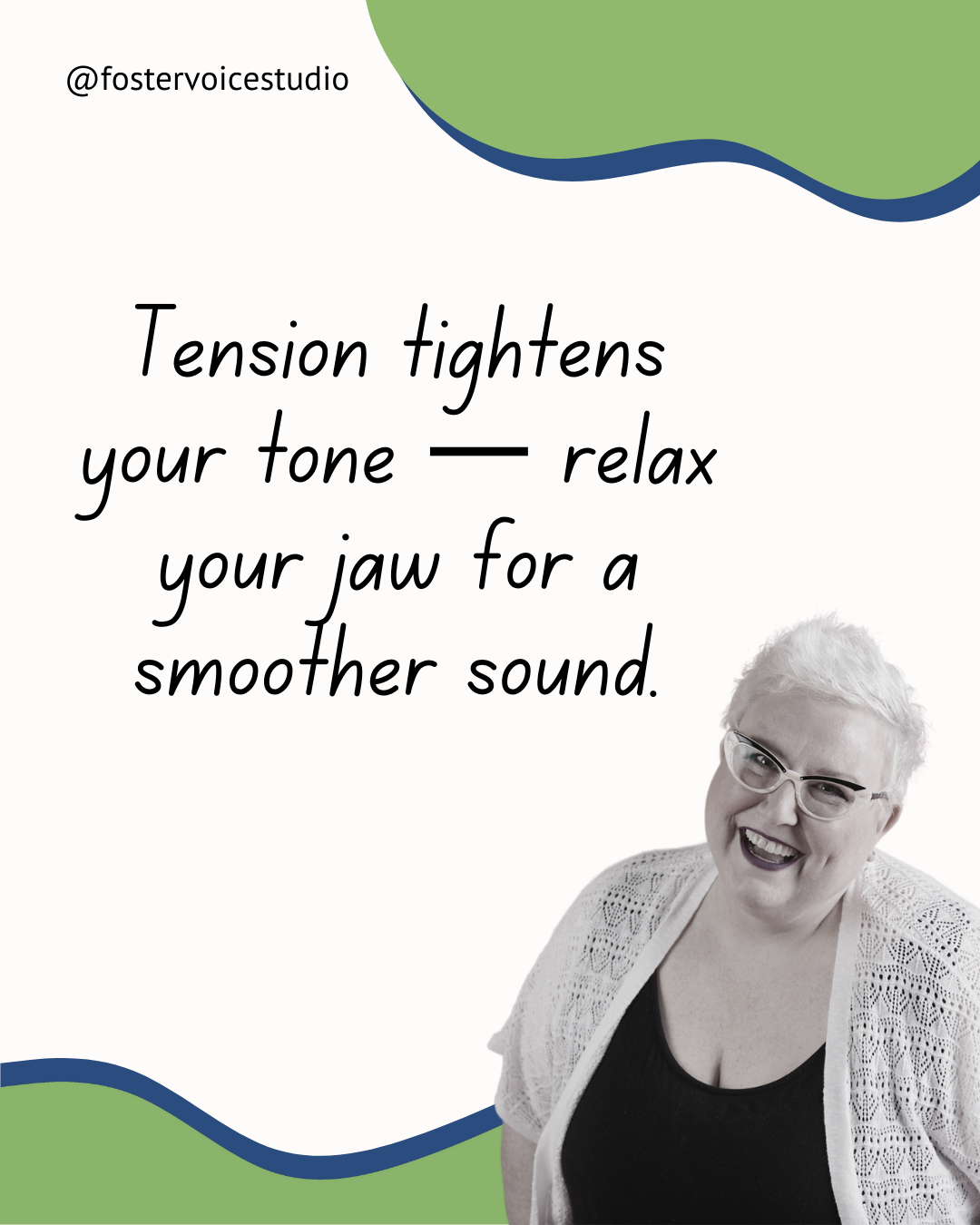Are you a massage person?
I TOTALLY am. Like clockwork—two massages a month.
Because if I don’t? My body reminds me. Loudly.
Between sitting at a desk, hunching over a laptop, or endlessly scrolling our phones, it’s no wonder so many of us are walking around like tightly wound rubber bands.
And if you’re a civil plaintiff trial attorney, you may be holding more tension than most.
You’re carrying your clients. Your caseload. The courtroom pressure.
All of it shows up in your body—and most often, it parks itself across your upper back and shoulders.
Go ahead. Stop reading for a sec and roll your shoulders.
5 times forward. 5 times back.
(Feels better already, right?)
But here’s the thing: not all tension is obvious.
The Hidden Tension That Affects Your Voice
As helpful as it is to release that shoulder strain, there’s a sneakier kind of tension you might be missing.
This isn’t the stress kind. It’s not even situational.
It’s habitual.
It’s the kind of muscle-holding your body has been doing for so long that you barely even notice it anymore.
So here’s a quick check-in:
👄 What’s going on with your jaw right now?
👅 Where is your tongue sitting?
Most trial lawyers don’t realize that how they hold their jaw and tongue—yes, even at rest—directly affects the quality of their voice, their facial expressions, and their ability to connect with jurors.
Understanding Resting Position
Let’s talk “resting position.” It’s what your mouth should be doing when you’re not speaking.
Here’s what healthy, tension-free resting position looks like:
✅ Mouth closed
✅ Teeth slightly apart (not clenched!)
✅ Tongue gently resting on the roof of the mouth
How many of those can you check off right now?
If your jaw is tight or clenched…
If your tongue is glued to the floor of your mouth…
If your teeth are constantly in contact…
You’re likely carrying chronic oral tension—and that tension is:
⚡ Making your tone sound tight or harsh
⚡ Restricting your vocal range
⚡ Dampening your expressiveness
⚡ And unconsciously signaling anxiety to your jurors
Why This Matters in the Courtroom
When you’re holding tension in your face and mouth, jurors can feel it.
They may not know why they feel uneasy, but they’ll pick up on the micro-expressions and subtle vocal constriction.
But when you’re at ease?
They can be at ease.
And that ease fosters something essential: trust.
What to Do About It
Changing muscular habits takes awareness, repetition, and intention.
Start here:
✔️ Several times a day, check in with your jaw and tongue. Are they relaxed?
✔️ Practice holding a neutral resting position while reading, driving, or sitting in court.
✔️ Add gentle jaw stretches or tongue-release exercises to your warmup before trial.
Small shifts lead to big changes.
And over time, this relaxed, open presence will show up in your voice, your expressions, and how jurors feel when they listen to you.
Bottom Line: Tension Limits, Relaxation Expands
When you release habitual tension—especially the sneaky kind—you unlock the full range of your voice and expression.
You sound more credible.
You look more confident.
And your jurors feel safer leaning in to trust you.
This is how you show up with strength and humanity.
This is how you foster your voice.
LET'S STAY CONNECTED
You’re already speaking. Let’s make it count.
Get one smart, time-saving vocal tip each Tuesday to help jurors learn faster, retain more, and stay connected — so your message lands the first time.
You're safe with me. I'll never spam you or sell your contact info.


